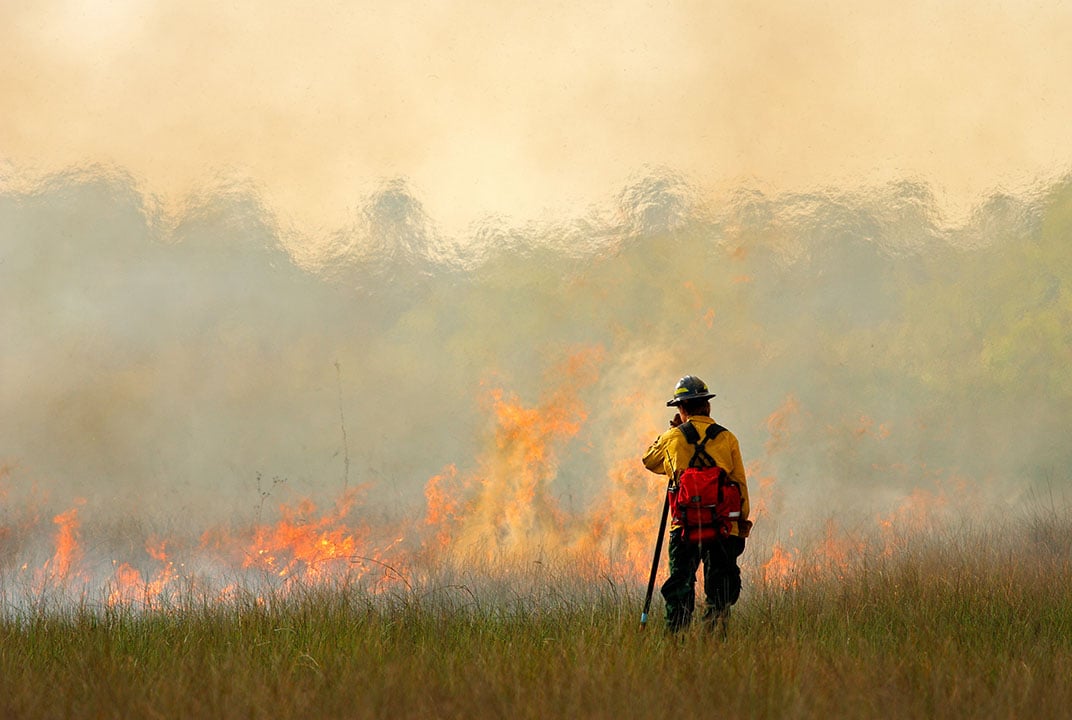Insight | Reliable communications in the middle of British Columbia? Got it.
Reliable communications in the middle of British Columbia? Got it.
null
Following devastating wildfires in 2018, Justin Wright from Team Rubicon Canada explains why our connectivity is key to establishing the organisation as a dependable asset to communities in times of need.
In many respects Canada is a leading example for much of the Western world – biasedly speaking, of course. This could largely be attributed to the fact that we have such a vast landscape and relatively small population; Canadians are often faced with challenging situations and often looked upon to do a lot with very little. One area in which we are arguably behind the times is in telecommunications.
If you reside in one of the major city’s across Canada, telecommunications issues are likely not noticed unless you find yourself in an elevator or the deep recess of the concrete jungle. However, if you drive an hour outside of a major city, you are likely going to find yourself in a spotty area at best. For those that go north to enjoy a getaway, this probably doesn’t sound like a bad deal. However, for emergency services, remote communities and emergency relief NGO’s like Team Rubicon Canada depend upon communications to ensure the safety of our people.
When disaster strikes in Canada major cities are usually not the first to be hit. Often it is the remote communities on the outskirts that tend to be the ones most heavily affected by an incident. At Team Rubicon Canada, often one of the primary planning factors is communications – what is available, what is its reliability, and what do we or the community need in order to be successful?
This past summer there was significant wildfires in Northern Ontario and again in British Columbia, being its worst fire season in recent history. Team Rubicon Canada launched a recovery operation to the Burns Lake BC area called Operation Northern Lights. A small team of 16 Greyshirts, all sawyers, deployed to the community of Grassy Plains and assist those who had been affected and displaced by the recent wildfire, preparing for the winter ahead. When planning for this operation our team identified that comms, or the lack thereof, would be a significant issue. We didn’t know just how bad until we got on the ground.
We half-joked that our 1 bar of extended cellphone coverage would come and go with the wind, which in many cases it did. With Wi-Fi being non-existent in the area and hand radios being ineffective due to the rolling hills and varying distances between our teams and our FOB, we found ourselves presented with a significant dilemma. We had everything in place to launch, but no reliable communication plan to ensure our Greyshirts are connected to one another and able to access the support resources they need to succeed.
Team Rubicon Canada turned to Team Rubicon Global and Inmarsat for support. Through Team Rubicon Global, Inmarsat provided several satellite communication phones which became our teams’ primary means of communication. This gave our teams the ability to stay connected and access to emergency medical services should they have been needed. Having Inmarsat as a partner gave us the confidence to launch this recovery operation and afforded us a light, agile, and reliable communication solution.
Going forward, as Team Rubicon Canada continues to grow in size and take on more opportunities, we know that we are going to need to build our teams to be light and agile if we are to remain a rapidly deployable organization and an asset to Canadian communities – regardless of how remote or inaccessible they might be. Undoubtedly, this will only be possible by our ability to communicate with our volunteers effectively and ensure their safety. The relationship with Inmarsat and the communication tools that they provide makes them a pivotal partner in helping Team Rubicon Canada establish itself as a dependable asset to communities in times of need. After all, the world needs more Canada.
About the author
Justin Wright is the Launch Manager for Team Rubicon Canada. Justin served honourably in the Canadian Armed Forces Infantry corps for just over a decade with a brief stint in Psychological Operations where he deployed to Afghanistan as a Tactical Operator supporting both the USA and Canadian mission. He later aided in the early stage development of the Psyops capability within Canada. In his commitment to service, and wanting to do more with the many skills and attributes gained from his military service, he was introduced to Team Rubicon by his fire team partner from Afghanistan. After a year of volunteering, he and his fire team partner were asked to steward the development and launch of Team Rubicon in Canada. Justin is a sports enthusiast who on the best of days can be found golfing, skiing, playing baseball or participating in most things outdoors. He is also an avid hockey aficionado and coached for several years prior to joining the military, where he taught the likes of NHLer Connor McDavid how to skate (true story)!


